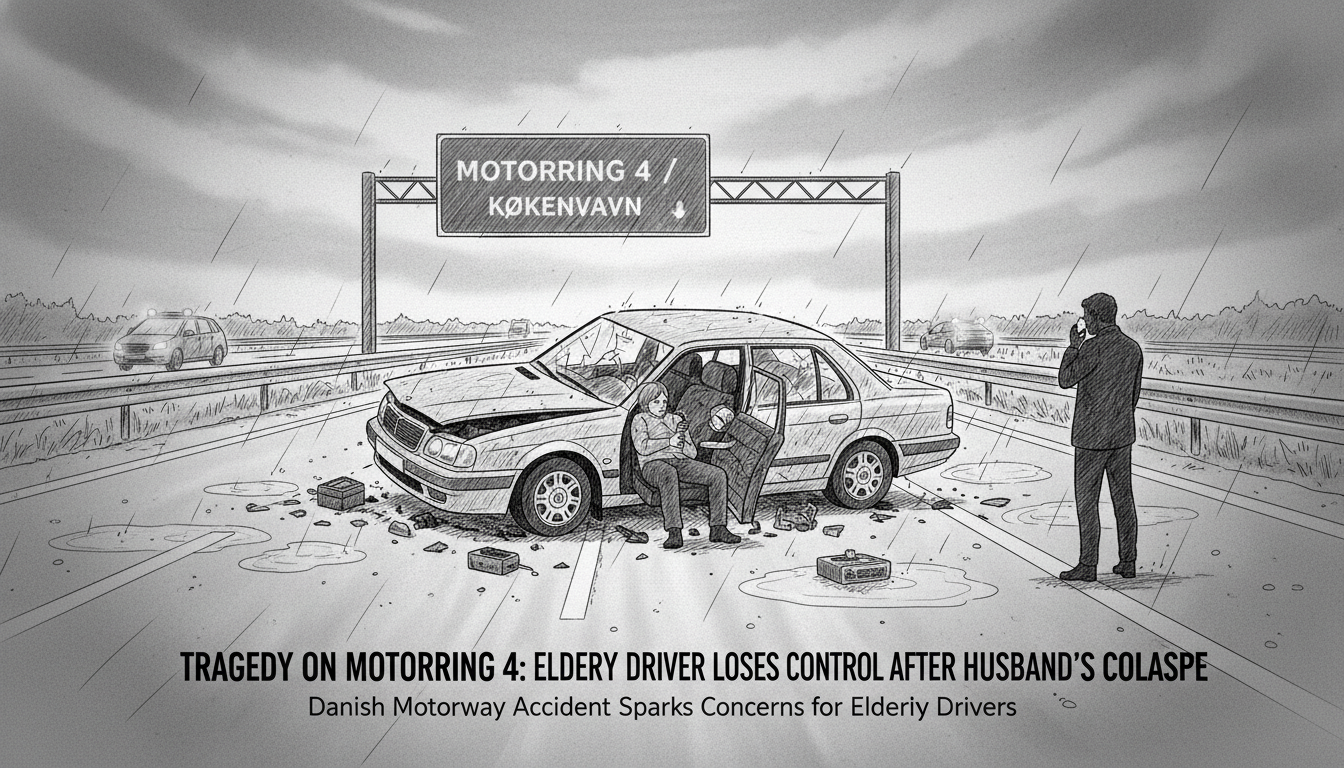A serious traffic incident blocked Motorring 4 near Ballerup during Friday's evening commute. The southbound lanes between the Albertslund exit and Taastrup motorway junction remained closed for several hours. Emergency crews cleared the scene by 6 PM, allowing traffic to resume normal flow.
The accident occurred after an 84-year-old male passenger experienced sudden medical distress. His wife, who was driving the vehicle, subsequently lost control of the car. Police confirmed the sequence of events in an official statement.
Medical personnel provided immediate first aid to the elderly man at the scene. He was transported to a nearby hospital where doctors later pronounced him dead. Two vehicles were involved in the collision, but no other serious injuries were reported.
Authorities have notified the family members of both individuals. The investigation continues into the exact circumstances surrounding this tragic event.
This incident highlights the challenges elderly drivers and their passengers face on Denmark's roadways. With an aging population across Scandinavia, such medical emergencies during transit are becoming more common. Danish traffic safety records show similar incidents occur several times each year, particularly involving senior citizens.
The location of this accident, Motorring 4, serves as a critical transportation artery around Copenhagen's western suburbs. Heavy commuter traffic during Friday evenings creates challenging conditions for drivers dealing with emergencies. Road safety experts note that medical events while driving represent a growing concern for transportation authorities throughout the Nordic region.
Denmark's emergency response systems typically deploy rapidly to such incidents. The coordinated effort between police, medical services, and road maintenance crews helped restore traffic flow within hours. This efficient response reflects Scandinavia's generally well-regarded emergency management infrastructure.
For international readers, it's worth noting that Danish roads maintain high safety standards, yet unpredictable medical situations can create dangerous scenarios anywhere. The country's comprehensive healthcare system and rapid emergency response capabilities provide important safeguards, but cannot prevent all tragic outcomes.
What happens next in cases like this typically involves a thorough police investigation and coroner's report. The family will receive support services while authorities determine the exact medical cause behind the passenger's sudden illness. Such thorough investigations are standard procedure in Denmark's meticulous approach to traffic safety and public health documentation.

